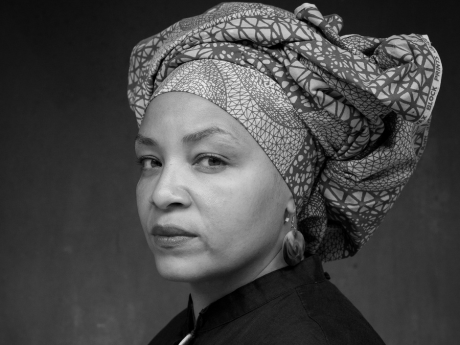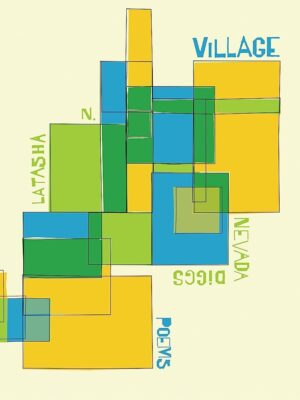In Their Own Words
LaTasha N. Nevada Diggs on “Performance” 1–4

To assist my survivors in making arrangements
at the time of my departure,
i provide the following information:
1.
NOTIFICATION.
i desire that “my peoples,”
of variable species — two legged, winged, w/ domestic
& international country codes &/or zip codes —
be contacted immediately in order to offer assistance
& relief & any milonga thrown by surviving estranged blood relatives.
i disinherit all trifling estranged blood relatives.
2.
FUNERAL HOME/DIRECTOR.
i desire that no funeral be held; instead,
M_ _ _ V_ _ _, T_ _ _ _, T_ _ _ _ _, my peoples
winged, w/out scales, w/ variable international country codes have been
consulted in customizing a bedazzled urn
& w/ making the celebratory, lampooning roast arrangements
requested in this document.
The arrangements have been made
& are attached to this document as Exhibit 1.
3.
TREATMENT OF BODY.
i desire my body not to be buried in Rose Hills Cemetery,
Lot Number __ / Location: Peekskill, NY.
i desire that my body be in a mushroom suit
or cremated,
afterward, a handful left
at the crossroads of 111th Street & Lenox Avenue
(aka Malcolm X Blvd.).
other arrangements concerning my ashes
have been made & are attached in Exhibit 2.
4.
FLOWERS & MEMORIAL.
i request that donations
be made to the organizations
listed below in lieu of killing flowers:
C_ _ _ _ _, D_ _ _ _ D_ _ _ _ _ _ _ _, A_ _ _,
S_ _ _ _ W_ _ _ _ D _ _ _ _ & Y_ _ _
& T_ _ L_ _ _ _ _ _ _ _ _ P_ _ _ _ _ _.
Reprinted from Village (Coffee House Press, 2023) with the permission of the author and publisher. All rights reserved.
On “Performance" 1–4
“I find it so amazing when people tell me that electronic music has no soul. You can't blame the computer. If there's no soul in the music, it's because nobody put it there. And it’s not the tools for it.” Björk on Electronic Music
It was during graduate school that I wrote a poem entitled “Will of the Estranged.” June 1st 2006 marked the passing of my mother. There were no instructions for what she wished for; only a cemetery plot she made monthly payments on. A conversation with the late Kathleen Fraser followed and the poem eventually disappeared from a box of incomplete manuscripts. What is remembered was the litany of items, the dissatisfaction with family members, a despecho you’d feel from a ranchero sung by Aída Cuevas or Chavela. That despecho is tied to health proxies, wills, trusts and end of life instructions not present amongst close, dear friends.
The word “disinherit” bites. It is cold-blooded and explosive. The word amplifies a scorn, a hurt or distaste to be carried into the air. To disinherit is to lay down a mark. Much like the scene where Celie raises her to hand to mark her abuser in The Color Purple. In legalese, it is pretty direct. Who is and who will be marked as untouchable and without agency. Yet within the performance given by The Artist’s final words, no one is named, few are hinted at and fewer are gifted a description. The word “trifling” for example. For those who know and who are respectfully unnamed may decipher. This play with the direct and indirect drives the entire series entitled “Performance.” I make as a strategy what was faced with the passing of my mother and what might be experienced by anyone.
Blood does carry some conscience.
In the realm of procedural poetics based upon non-creative documents, the personal can have a hard time inside experimentation. As I trashed and rewrote poems, the flatness of the legal document made sense to convey what my body felt. It became a method to remove sentimentality and make more complex, the grievances. “The Artist,” though not specifically identified in this series, is becoming distilled.
Lastly, it asks the reader if this series could stand in as a legal document should it be signed The Artist and notarized.
Go marinate on that one.



